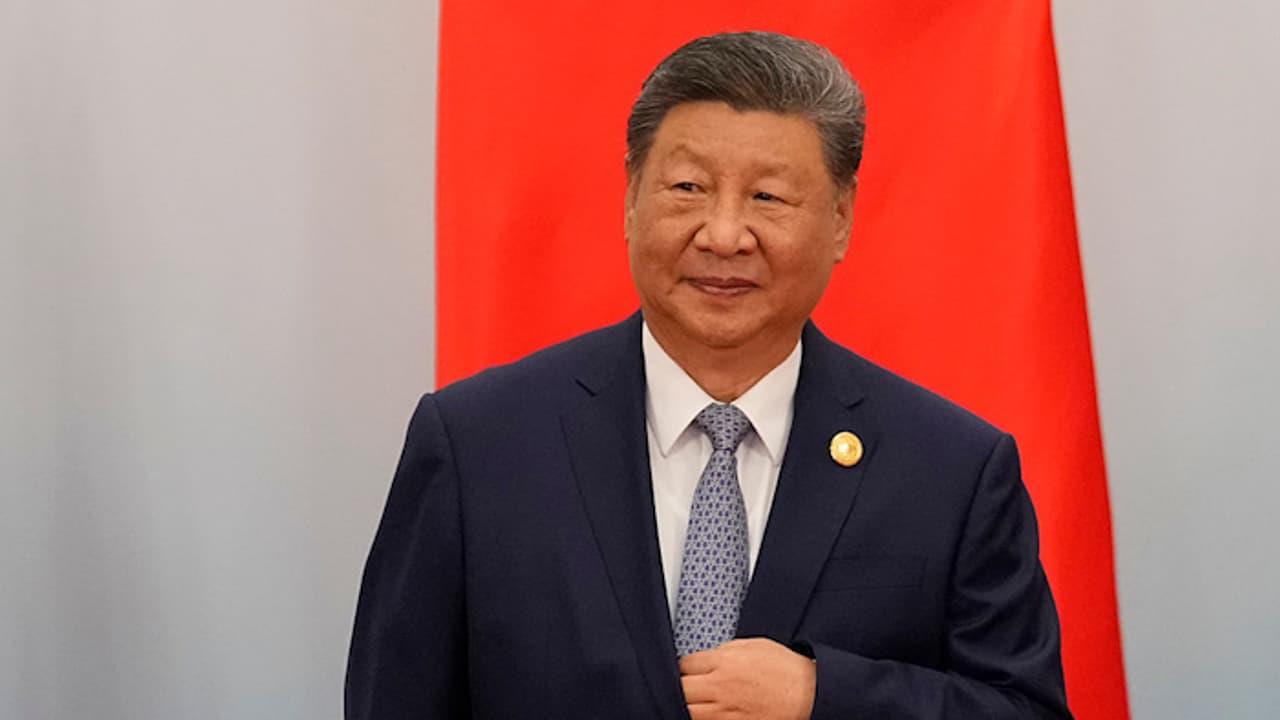
Explained: What The Sudden Removal Of Senior PLA Leaders Means For Xi Jinping's Grip, Taiwan Strategy
On October 17, Beijing announced the expulsion of General He Weidong from the Communist Party. Once the second‐highest ranking officer in the People's Liberation Army (PLA) and a member of the Politburo, his removal was paired with the dismissal of Admiral Miao Hua. The decision marked the first time in more than four decades that a vice chairman of the Central Military Commission (CMC) had been stripped of power. The CMC, which traditionally holds seven members, is now reduced to just four.
Both He and Miao had been elevated by Xi Jinping himself. He was promoted to the CMC in 2020, while Miao was advanced in 2017. Their rise was seen as part of Xi's effort to rejuvenate the military's senior leadership. Their sudden downfall has raised questions about Xi's judgment in personnel appointments and whether his grip on the armed forces is as firm as once believed.
Reports suggest the purge reflects a deeper struggle between Zhang Youxia, the CMC's senior vice chairman, and the younger leaders He and Miao. Zhang, whose father was a Red Army hero, is a veteran of the 1979 border conflict with Vietnam. Known as a tough soldier in the Maoist tradition, Zhang represents the entrenched elite. By contrast, both He and Miao began their careers as teenage privates in the 31st Group Army, the frontline force opposite Taiwan. Their rise from the ranks symbolized a challenge to the old guard.
The 31st Group Army, now designated the 73rd, has long been tasked with preparing for a Taiwan invasion. He Weidong spent three decades in its ranks, eventually commanding the unit. He reportedly designed the PLA's aggressive response to U.S. House Speaker Nancy Pelosi's 2022 visit to Taiwan, which Washington criticized as an overreaction. Miao Hua shared a similar trajectory, also rising through the same unit and building his career on the Taiwan front.
The conflict escalated in July 2023 with the purge of senior officers in the PLA Rocket Force, the branch responsible for China's nuclear arsenal. Traditionally led by youngsters, the Rocket Force was shaken by revelations of corruption in missile production. Reports indicated that many newly built nuclear missiles were inoperable. He Weidong may have used this scandal to remove Rocket Force leaders, striking directly at Zhang's network of allies.
In October 2023, Defense Minister Li Shangfu was dismissed on corruption charges. Li, a protege of Zhang and former procurement chief, was closely tied to the princeling faction. His removal cut into Zhang's influence, as procurement has long been a lucrative and politically sensitive domain within the PLA.
In April 2024, Xi's secretary and speechwriter within the CMC was reassigned to the National Defense University, a lateral move that raised eyebrows. He was replaced by General Fang Yongxiang, another officer from the 31st Group Army who, like He, had risen from the ranks without a college education. Fang's absence from Xi's inspection tour to Tibet in August 2025 suggested he too may have been quietly removed.
By November 2024, Zhang appeared to strike back. Miao Hua was dismissed from the CMC, ending the parallel rise of two men who had mirrored each other's careers. Since 2022, at least 26 other senior officers have been removed, though their loyalties remain unclear.
Xi's Silence and the Uncertain Future of the PLA
Despite the impressive display of equipment at the most recent Victory Day parade, anomalies suggested deeper problems. Zhang Youxia was the only uniformed officer on the rostrum, seated unusually behind the Politburo Standing Committee. The presiding officer was not one of the five theater commanders, as tradition dictates, but a relatively low‐ranking two‐star Air Force general. Furthermore, the generals leading each unit were not identified by name, a break from past practice.
The central question is Xi's role in these events. If he elevated He to advance a more aggressive Taiwan strategy, why abandon him during the struggle? Some suggest Xi may have chosen not to intervene, wary of Zhang's entrenched authority. Others argue Zhang viewed the younger generals as reckless and persuaded Xi to act against them. The lack of clarity has fueled speculation about Xi's decision‐making and his willingness to confront internal disputes.
If the campaign were purely about corruption, critics ask why it disproportionately targeted officers with ties to the 31st Group Army. Generals Lin Xiangyang and Wang Xiubin, both with long histories in the same unit, were expelled alongside He Weidong. This pattern suggests the purge was not simply about graft but also about eliminating a rising faction.
The repeated removals have unsettled the officer corps. With three of seven CMC seats vacant and the new defense minister not yet appointed to the CMC or State Council, promotions appear frozen. In such periods, officers become risk‐averse, uncertain who might be accused next. Corruption remains endemic, and the uncertainty may complicate any plans for increased military pressure on Taiwan.
The turmoil has cast doubt on Xi's judgment, particularly in personnel matters. The downfall of former Foreign Minister Qin Gang added to perceptions of instability. Rumors about Xi's health circulate among the diaspora, though his domestic travel schedule remains active. Ultimately, the leadership will need to fill the vacant CMC seats, a process that may reveal the true balance of power within China's military command.
Legal Disclaimer:
MENAFN provides the
information “as is” without warranty of any kind. We do not accept
any responsibility or liability for the accuracy, content, images,
videos, licenses, completeness, legality, or reliability of the information
contained in this article. If you have any complaints or copyright
issues related to this article, kindly contact the provider above.


















Comments
No comment